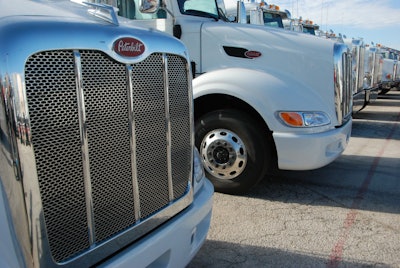A year’s end is always a good time to take stock of what you can do to minimize taxes and otherwise improve your finances. This year and next don’t hold big changes in income tax rules that affect owner-operators. Still, there are some, mostly good ones, as well as tax-reduction strategies that work every year.
If you’re expecting high taxable income and could use more deductions, one classic strategy is to accelerate business-related purchases. Considering a truck replacement in early 2020? Do it by this Dec. 31 to get the major break for 2019 taxes instead of 2020’s. It’s the same for trailers and other much less expensive equipment.
 2022 is the last tax year in which bonus depreciation can be claimed at 100% for buying a truck or other equipment that costs over $2,500. Part 2 of this “Year-end financial planning” series, covers retirement and health care.
2022 is the last tax year in which bonus depreciation can be claimed at 100% for buying a truck or other equipment that costs over $2,500. Part 2 of this “Year-end financial planning” series, covers retirement and health care.One major caveat for piling up deductions of any kind is to know the big picture for your income, especially if you had a bad year. The concern is you don’t want to waste efforts on deductions, such as accelerating a big purchase to 2019, when your taxable income is at zero or close to it, warns Michael Schneider, tax manager for ATBS, the nation’s largest owner-operator financial services company.
“You want to have some taxable income because the government is giving you some deductions,” he says.
The major one is the standard deduction. It rises $400 to $24,400 for 2019 for taxpayers who are married and filing jointly, and it’s up $200 to $12,200 for individuals.
For owner-operators, another big one is depreciation. You can take bonus depreciation of 100% for purchases over $2,500 in 2019, as well as subsequent years through 2022. “After 2022, bonus depreciation starts dropping 20% each year,” Schneider says, till it expires after 2026.
Since the standard deduction has been raised, fewer taxpayers have found they have enough other deductions (exceeding the standard deduction) to justify itemizing deductions. If you do itemize, the calendar again comes into play. For example, charitable deductions, which are deductible, need to be made by Dec. 31. If you’re not sure about your status, check with your accountant.
A perennial misunderstanding is that “deductions aren’t dollar-for-dollar reductions of your tax,” Schneider adds. That would be a tax credit. Congress and the Internal Revenue Service are pretty stingy about creating those.
Instead, a deduction reduces taxable income. If you’re paying 20% in taxes, deducting $100 from income saves you $20. So regardless of your timing on a purchase, “Only buy equipment if you really need it,” Schneider advises.
The flip side of accelerating deductions into 2019 is the potential to delay income to 2020, though it’s not a common tactic. “One settlement check out of 52 weeks – that’s not a big bang for your buck,” Schneider says.
But if you’re sitting on enough cash at year-end and need to reduce taxable income, asking your fleet or other party that owes you to delay payment is a legitimate strategy. What counts is when the check is dated, not when you cash it.










